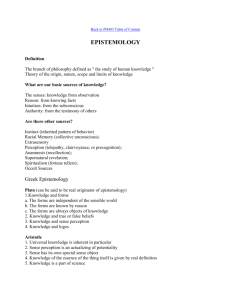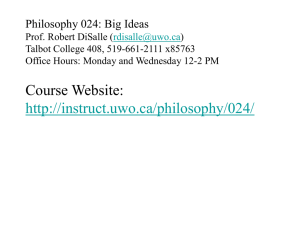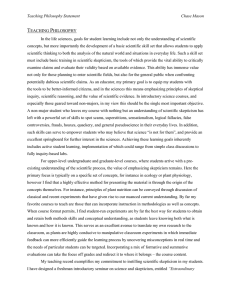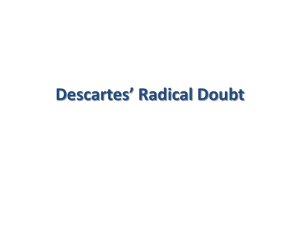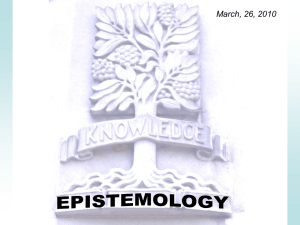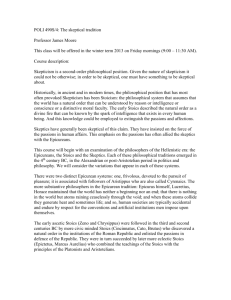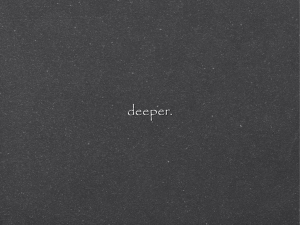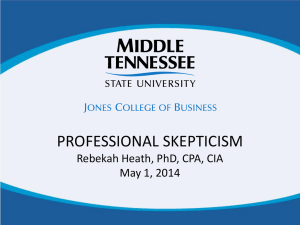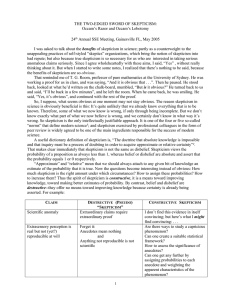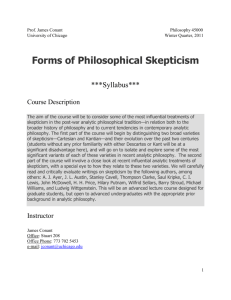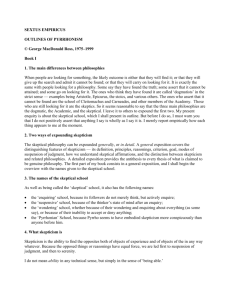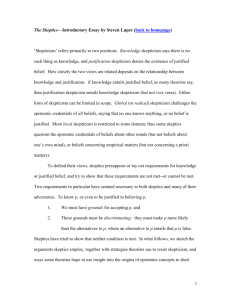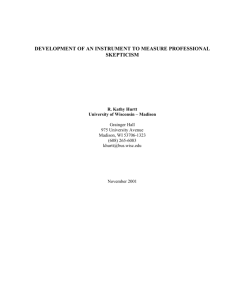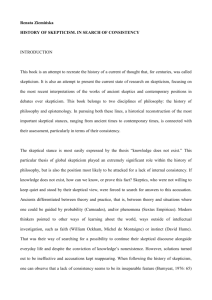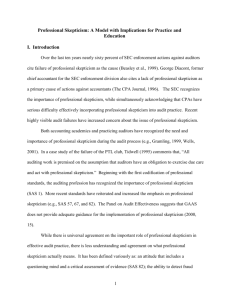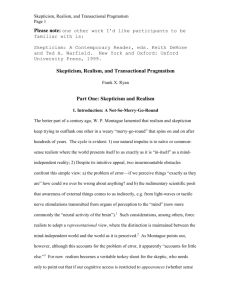Skepticism Theory
advertisement
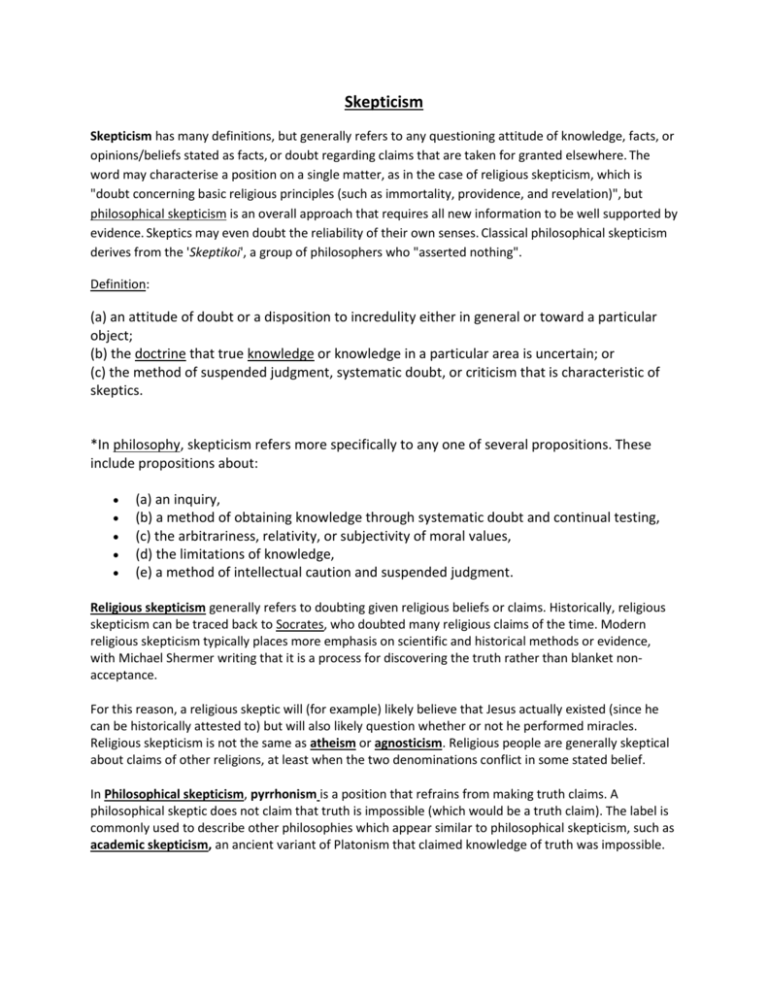
Skepticism Skepticism has many definitions, but generally refers to any questioning attitude of knowledge, facts, or opinions/beliefs stated as facts, or doubt regarding claims that are taken for granted elsewhere. The word may characterise a position on a single matter, as in the case of religious skepticism, which is "doubt concerning basic religious principles (such as immortality, providence, and revelation)", but philosophical skepticism is an overall approach that requires all new information to be well supported by evidence. Skeptics may even doubt the reliability of their own senses. Classical philosophical skepticism derives from the 'Skeptikoi', a group of philosophers who "asserted nothing". Definition: (a) an attitude of doubt or a disposition to incredulity either in general or toward a particular object; (b) the doctrine that true knowledge or knowledge in a particular area is uncertain; or (c) the method of suspended judgment, systematic doubt, or criticism that is characteristic of skeptics. *In philosophy, skepticism refers more specifically to any one of several propositions. These include propositions about: (a) an inquiry, (b) a method of obtaining knowledge through systematic doubt and continual testing, (c) the arbitrariness, relativity, or subjectivity of moral values, (d) the limitations of knowledge, (e) a method of intellectual caution and suspended judgment. Religious skepticism generally refers to doubting given religious beliefs or claims. Historically, religious skepticism can be traced back to Socrates, who doubted many religious claims of the time. Modern religious skepticism typically places more emphasis on scientific and historical methods or evidence, with Michael Shermer writing that it is a process for discovering the truth rather than blanket nonacceptance. For this reason, a religious skeptic will (for example) likely believe that Jesus actually existed (since he can be historically attested to) but will also likely question whether or not he performed miracles. Religious skepticism is not the same as atheism or agnosticism. Religious people are generally skeptical about claims of other religions, at least when the two denominations conflict in some stated belief. In Philosophical skepticism, pyrrhonism is a position that refrains from making truth claims. A philosophical skeptic does not claim that truth is impossible (which would be a truth claim). The label is commonly used to describe other philosophies which appear similar to philosophical skepticism, such as academic skepticism, an ancient variant of Platonism that claimed knowledge of truth was impossible. For Thought, Reflection and Discussion… *Epistemology is the theory of knowledge. People use it to find out what is true. Unlike science, which simply requires something to work or be predicated/replicated, epistemology requires that for something to be knowledge or know, it has to be true, always and every ways. The great thinker/philosopher, Socrates, once stated that he did not know anything at all. How do we confirm we have knowledge of anything? Do we operate on Faith or on Knowledge? Human reason does indeed have certainty about various concepts. You know, for example, that the principle of contradiction, as stated by Aristotle, is true. That is, a thing cannot both be and not be at the same time. Can it ever be true, for example, that it is raining and not raining at the same time and in the same respect? No, it can never be. So the skeptics are wrong to say that no knowledge is certain, since logical principles are certain. “I doubt, therefore I am.” Belief MAKES nothing true. The greatest belief in the world makes nothing true. Likewise, the greatest doubt in the world makes nothing FALSE. Consider the following blanket opinions and work through them from a skeptic’s perspective: Everyone lies sometimes. I am who I am because I was born this way. It’s impossible to change someone else. Criminals should be put to death.

